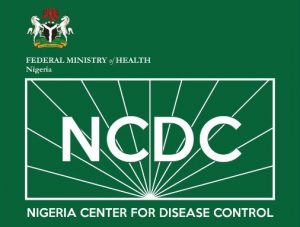Improved economic policy crucial for availability, affordability of protein in Nigeria-Experts

An improved economy and policies by the government, have been identified as necessary factors for availability and affordability of protein in Nigeria, some experts have unanimously canvassed.
According to them, the need for deliberate and well-thought-out policies, aimed at making protein readily available and affordable to citizens, would automatically improve protein consumption rate in the country.
Already, the Nigerian Protein Deficiency Survey Report 2019 unveiled at the launch of the Nigerian Protein Awareness Campaign had attributed major determinants of meals in Nigeria to affordability and availability.
Speaking during the Protein Deficiency Awareness webinar on ‘Nigeria’s Food Culture and the Challenge of Protein Deficiency’, President Poultry Association of Nigeria, Mr. Ezekiel Ibrahim, said Nigeria deteriorated in protein consumption as a result of poor government and poor planning. According to him, successive governments have paid lip service to agriculture, following the sudden discovery of crude oil.
According to him, chicken remains the best source of animal protein and that unlike in the past, when it would take three months to breed the local chicken to the level where it will be ready for consumption, in just four weeks, a broiler could be ready for consumption.
Besides, he pointed out that an egg is now sold for N50, which ought not to be, due to the capital intensive nature of agriculture, exacerbated by a weak Naira against the US Dollar.
He explained that whereas agriculture is capital intensive, interest rates are way too high in Nigeria, compared to other countries. To reverse the trend, he canvassed for a return to agriculture, with priority given to food production.
In addition, he called for the deliberate policy to encourage the youths to go into farming. He also decried a lack of data and planning anchored on assumptions.
“We cannot continue to assume that we are 200 million. We need reliable and transparent data,” he said, adding that dishonesty is scaring away investors.
Earlier, the Keynote speaker, Dr Omadeli Boyo, Medical Director, Pinecrest Special Hospital and public health expert took participants on a journey of meals Nigerians relish, providing a distinction between a healthy diet and those that are not healthy, especially for people in their 40s and above.
He also addressed malnutrition in Nigeria, stressing that Iron Deficiency (anaemia), protein-energy malnutrition, vitamin A deficiency and Iron deficiency, remain the main concern, adding that the Nigerian government has advised dietary diversification as a way of dealing with these deficiencies.
While commending the Federal Government’s school feeding initiative, he advised that a national programme of school feeding for pupils could also assist in eradicating these deficiencies in children.
Speaking on culture change, breaking the ice, Dr. Boyo advocated the need to sensitise communities, taking into cognisance the knowledge, attitude and practices of the various ethnic groups; confronting communities with realities, the dangers and causes of malnutrition and awareness campaigns.
Regarding the benefits of meals rich in protein; stakeholders to buy-in (women, farmers, cooperatives, traditional institutions, religious organisations, town unions, labour unions, media/film industry, institutions of learning, etc); government at all levels, through policy enactment and mass mobilisation, through the National Orientation Agency (NOA), education/educators and students, from early childhood through Universities.
As he puts it, protein can be either animal-based or plant-based. They include chicken, egg and red beef (meat-based protein) seen as a luxury in most homes and avocado pear, beans, pawpaw, ewedu leaf, cashew nut, groundnuts and almonds (plant-based protein).
He defined proteins as nutrients needed by the human body for growth and maintenance. “They are also used in membranes such as glycoprotein. When broken down into amino acid, they are used as precursors to nucleic acid, coenzymes, hormones, immune response, cellular repairs, and other molecules essential for life. Additionally, protein is needed to form blood cells,” he noted.









